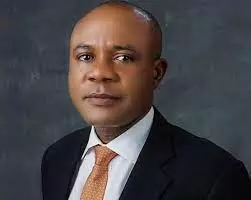Why we raise our education budget above UNESCO’s benchmark -Mbah

Gov. Peter Mbah of Enugu State says his administration raised the education budget above the United Nations Educational, Scientific, and Cultural Organisation's (UNESCO) recommended benchmark because of the priority attached to education.
Mbah disclosed this during his one-year office anniversary speech on Wednesday in Enugu.
The governor said his administration’s N158.78 billion education budget was both the highest per capita in the country and, as a percentage of the total budget sum, 33 percent.
This, he said, was higher than UNESCO’s recommended benchmark of 15–20 percent of the total annual budget.
“Based on this fact, I dare say it’s perhaps the highest in the world. The significance will be more profound if we pause for a moment to break down this figure.
“It implies that for every 100 Naira spent, N33 goes to the education budget. Think about that, and we will continue to demonstrate that there is no room for half measures where education is concerned,” he said.
He said that upon assumption of office, the government realised that strikes struck a particularly resonant tone in the education sector, where the learning imparted to the children over the years had failed to keep pace with the rapidly changing world of knowledge.
Mbah noted that the evolving order was rendering obsolete the children’s supposed knowledge, causing them to be left behind as the rest of the world continued to take giant strides.
“Our Smart Green School initiative is a bold response to the shortcomings of our public education system.
“The smart schools, which we are building in each of the state’s 260 electoral wards, are clearly at the cutting-edge of innovation.
“These schools are reflective of our steely resolve to bequeath to our children an experiential education that can help them navigate our evolving knowledge-driven world and imbue them with skills that ensure they can practicalize what they have learned,” he said
He said that the project was not an abstract dream as its prototype stood out elegantly in Owo in Nkanu East Council Area as a pointer to what the 259 others will look like on completion by 2025.
“Construction works are ongoing at 135 schools, with contract for the rest due for award in the second phase.
“Each Smart School features an interactive digital whiteboard, an internet system, a robotics and artificial intelligence centre, a modern ICT centre, two science laboratories, a hybrid multimedia library, a creative production studio, 25 inclusive classrooms, and 700 Android tablets.
“Through these schools, we are nurturing a silent technological revolution. So, our disruptive innovation mantra is by no means a catchphrase merely intended to captivate,” he explained.
He pointed out that the wealth of nations may be measured in terms of material resources, oil reserves, and the like, but true wealth lies in the quality of a state’s human resources, which are shaped to a great degree by the attention paid to public education.
“No nation can truly rise above its education standards.
“Imagine a situation where 50 percent of children are unable to read despite having spent four years in primary school.
“Or a scenario where 50 percent lacked simple numeracy skills like subtraction and addition after five years of primary school education.
“These were the shocking revelations of a baseline study we conducted in the early days of my administration.
“Nothing underlines our strong commitment to improve the quality of education in our dear state like the sum allocated to the sector in our budget,” he explained.




